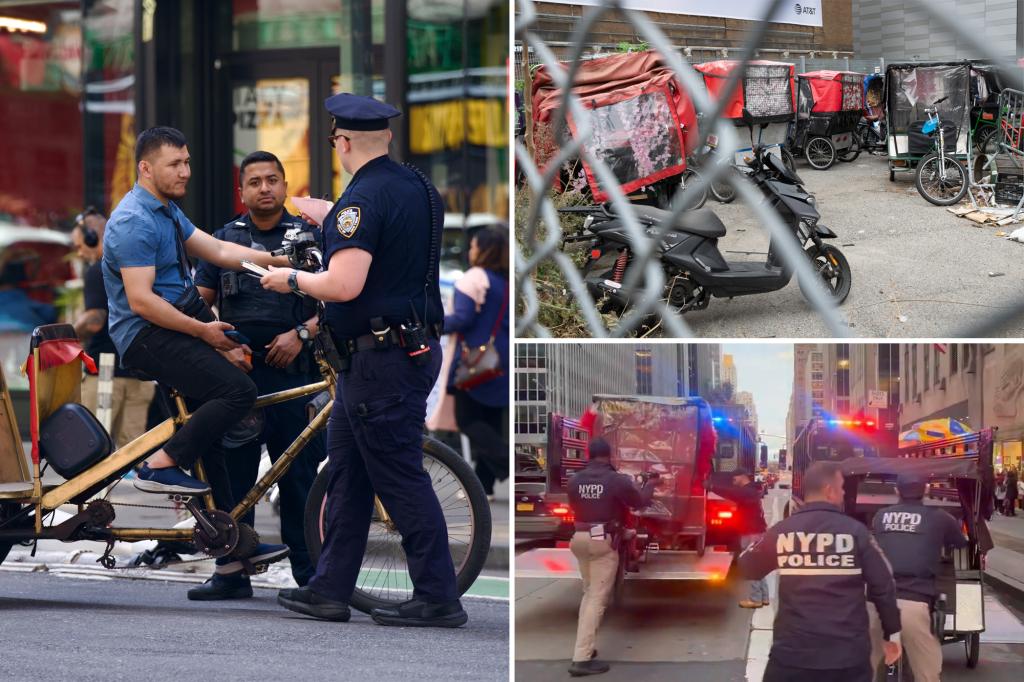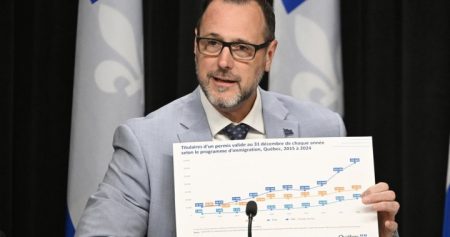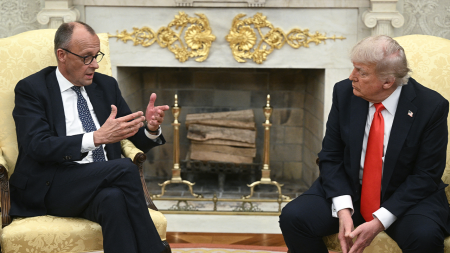The unregulated pedicab industry in Manhattan has experienced a dramatic surge in seizures, primarily driven by an NYPD crackdown following a New York Post exposé. The Post’s investigation revealed a pervasive pattern of illicit activities, including sexual assaults on customers, harassment of bystanders, vandalism against competitors, and exorbitant price gouging, sometimes reaching upwards of $1,000 per ride. This exposé served as a catalyst for the NYPD’s intensified enforcement efforts, resulting in a staggering 576% increase in pedicab seizures compared to the previous year. As of November 25th, 568 pedicabs were confiscated for various infractions, including operating with forged permits and driving without a license, a stark contrast to the mere 84 seizures during the same period in 2022.
The NYPD’s heightened enforcement campaign commenced in late August, just days after the Post’s report. On August 28th, a targeted operation across Midtown and Central Park yielded 52 seized pedicabs and four arrests for drivers using counterfeit registration stickers. This initial operation was swiftly followed by “Operation Front Door,” a broader initiative aimed at addressing quality-of-life issues plaguing Times Square, including the unruly behavior of pedicab operators. During the first week of “Operation Front Door,” at least 42 pedicabs were confiscated. The crackdown continued into November, resulting in the seizure of at least another 125 pedicabs. The NYPD’s public statements highlighted their commitment to addressing these issues, emphasizing the importance of creating safer and more orderly streets for both residents and visitors.
The escalation in enforcement actions extended beyond seizures to include a significant increase in criminal summonses issued to pedicab drivers. The number of summonses has risen by 83% compared to the previous year, jumping from 1,892 to 3,467. This surge reflects the police department’s intensified focus on holding pedicab operators accountable for their transgressions. The combination of increased seizures and criminal summonses signals a substantial shift in the NYPD’s approach to regulating the pedicab industry, a shift largely spurred by the public attention drawn to the industry’s illicit practices.
Prior to the crackdown, industry insiders revealed to the Post that more than half of the pedicabs operating in the city were using fraudulent paperwork, highlighting the widespread nature of illegal operations within the industry. Long-standing pedicab drivers, who have witnessed the escalating problems within their profession, welcomed the NYPD’s intervention. These experienced drivers had attempted to address the issues internally, urging their colleagues to adhere to regulations and ethical practices. However, their efforts were often met with resistance and hostility, underscoring the entrenched nature of the illegal activities within the pedicab sector. The crackdown was perceived as a long-overdue response to a problem that had plagued the industry for years.
The NYPD’s intensified enforcement actions have led to the impoundment of a large number of pedicabs. A Midtown impound lot observed by the Post contained at least 50 confiscated pedicabs, a visual testament to the scale of the ongoing crackdown. While the NYPD has stated that seized pedicabs can be reclaimed upon proof of ownership, the sheer number of impounded vehicles suggests a significant disruption to the operations of many pedicab businesses, particularly those operating illegally.
The NYPD has attributed the heightened enforcement to a surge in quality-of-life complaints received in the preceding year from residents and businesses. These complaints served as a clear indicator of the negative impact the unregulated pedicab industry was having on the city. The increased enforcement and confiscations implemented this year are a direct response to these complaints, reflecting the NYPD’s commitment to addressing community concerns and improving the overall quality of life in the affected areas. The crackdown underscores the importance of public pressure and media exposure in prompting regulatory action and addressing pervasive issues within unregulated industries. The NYPD’s actions represent a significant step towards bringing order and accountability to the pedicab industry in Manhattan, a sector long plagued by illicit practices and a disregard for regulations.










